7 Best Fruits That Burn Fat, According to Dietitians

If you’re looking to lose weight, diet and exercise absolutely go hand in hand. However, experts say the choices you make at the dinner table far outweigh the choices you make at the gym. That’s why, to move the needle on the scale, you should regularly opt for nutritionally dense, low-calorie foods that fill you up with their high fiber content—which is why we consulted experts about the best fruits for weight loss.
“Losing weight doesn’t necessarily mean that you have to eat less food,” says the Centers for Disease Control and Prevention (CDC). “You can create lower-calorie versions of some of your favorite dishes by substituting low-calorie fruits and vegetables in place of higher-calorie ingredients.”
The health authority further explains that the water and fiber in fruits and vegetables can help bulk up your meals, allowing you to eat the same amount of food without packing on the pounds. “You can feel full while eating fewer calories,” they write.
Besides being naturally low in fat and calories, many fruits contain vitamins A, C, and E, along with antioxidants, which have been linked with lower body weight, reduced fat gain, and less abdominal fat.
Wondering which ones dietitians recommend? These are the seven best fruits for optimizing weight loss and shedding those unwanted pounds.
RELATED: 6 Fruits to Avoid If You’re Trying to Lose Weight, Doctor Says.
1. Berries
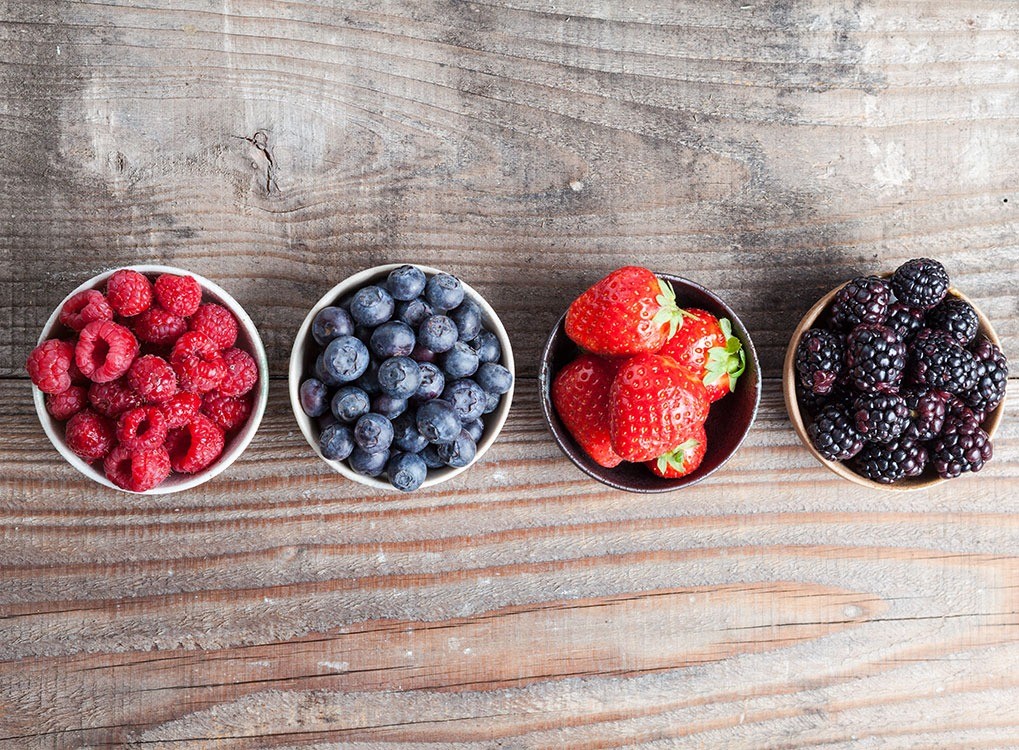
Any fruits that are high in fiber and low in calories with a low glycemic index should help aid in weight loss, says Amie Alexander, an accredited dietitian at Nutri Peak.
“My pick would be berries—like strawberries, raspberries, and blueberries—since they are rich in fiber and antioxidants while being low in calories. They keep you fuller for much longer and help sweet cravings without a big blood sugar spike,” she explains.
“For a whole pound of strawberries, you eat only 150 calories,” adds fitness expert and content creator Eric Roberts in a recent TikTok post.
2. Apples

Alexander also recommends following the old adage of having an apple a day. She says they can satisfy your sweet tooth while helping to control hunger between meals.
“They are full of fiber, particularly pectin, a type of fiber that slows digestion and makes one fuller longer,” the dietitian says. “It’s also good for those on a weight loss diet because it has a very low ranking in the glycemic index, and it is known to aid in fat burning due to its high water content and presence of compounds that may lower insulin levels.”
3. Pears
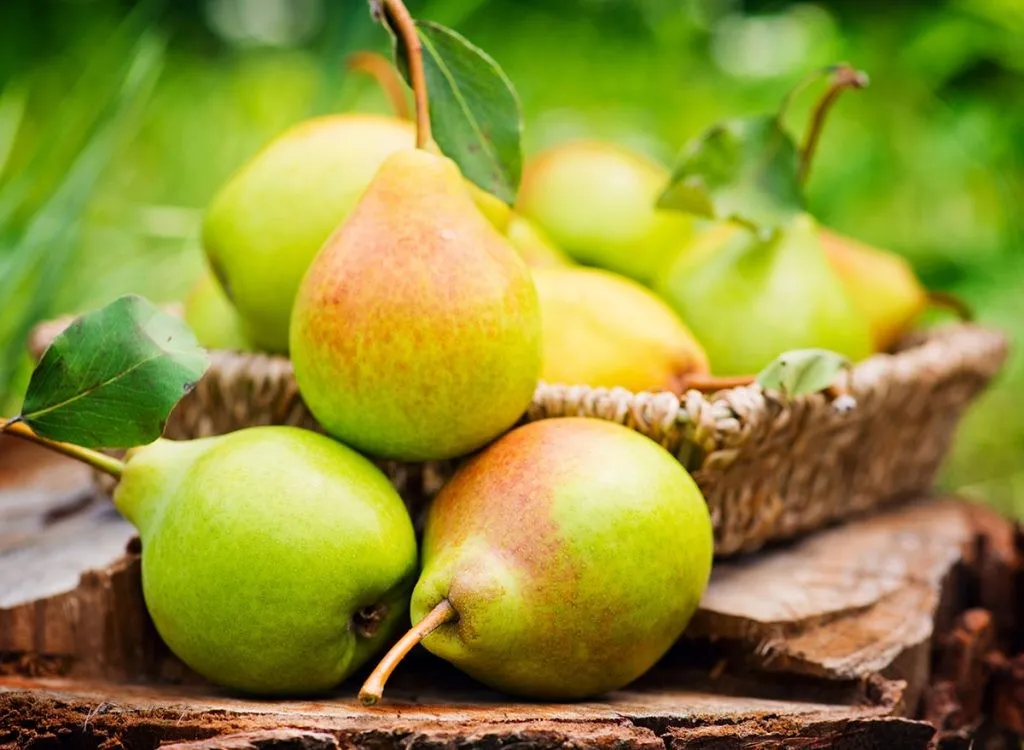
Pears offer many of the same benefits as apples. “They are rich in dietary fiber, especially in the skin. They have the same filling effect as apples and can prove to be a quite satisfying low-calorie snack,” Alexander notes.
Chris Mohr, PhD, RD, a fitness and nutrition advisor at Fortune Recommends Health, agrees that pears should top your list of weight loss-friendly foods: “They’re low in calories and filled with vitamins and minerals.”
4. Kiwi fruit

Alexander says kiwis are another “excellent addition” to a weight loss diet.
“They are full of fiber and vitamin C and have one extraordinary quality—fixing digestion and boosting metabolism of fats. In addition, natural sweetness helps to kill the desire for unhealthy snacks,” she tells Best Life.
RELATED: 4 Best Fruits to Erase Bloating, Science Shows.
5. Oranges
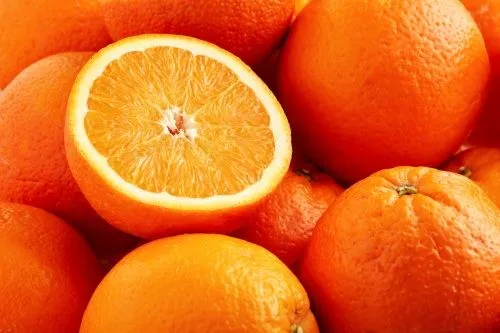
In a 2018 animal study, researchers from the University of Western Ontario looked at the effects of nobiletin—a flavonoid found in oranges—on weight loss. They found that when they added nobiletin extract to the diets of obese mice, the animals not only lost weight and reversed their symptoms of metabolic syndrome, but they also reversed the effects of atherosclerosis—a buildup of plaque in the arteries.
“These tangy fruits are a low-calorie, nutrient-dense choice that can help with weight loss,” says Catherine Gervacio, RD, a registered dietitian and a certified exercise nutrition coach working with Living.Fit. “The fiber in oranges helps you feel full and aids in digestion while its vitamin C content enhances the body’s ability to absorb iron from plant-based foods, which is especially important for preventing anemia. One to two oranges per day is enough.”
6. Grapefruit
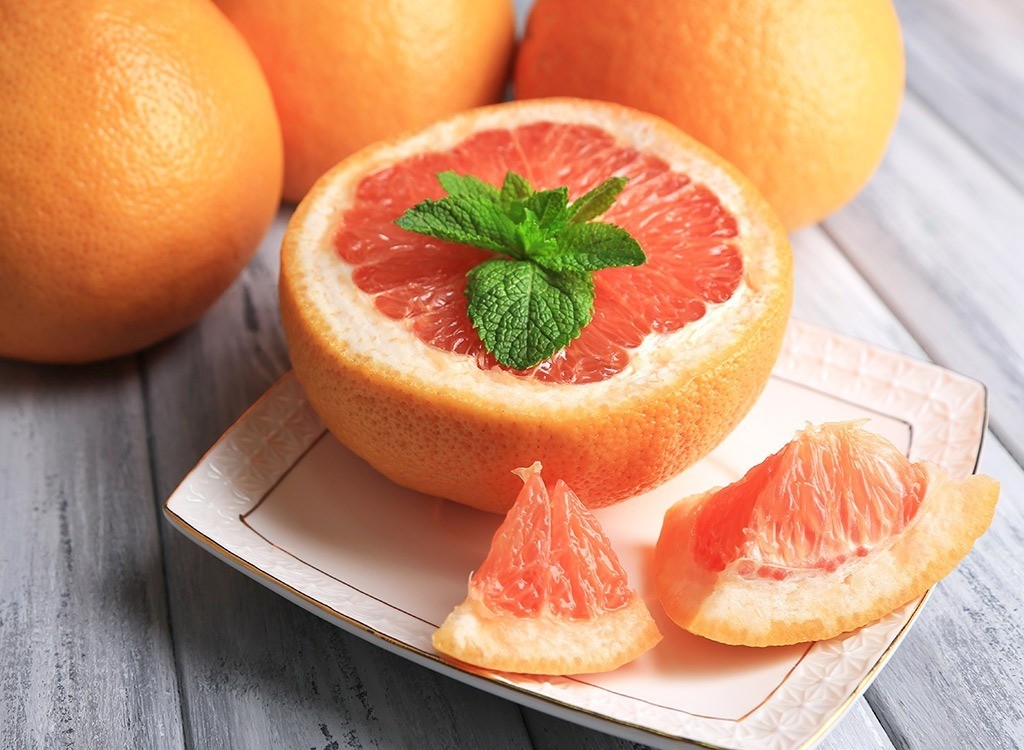
Ever since the 1930s, grapefruit has been a popular part of weight-loss diets. However, experts note that these eating plans rely on a dramatically reduced calorie intake, not some secret superpower of the fruit itself.
Gervacio points out that grapefruit contains only 38 calories per half-fruit but can be relatively large and filling. This means that if you eat it before meals, as these diet plans suggest, you may go on to eat less during your meal while still feeling satiated.
“It is also rich in vitamin C that supports the immune system. This is important to ensure a healthy weight loss,” she says.
RELATED: These 10 Foods Flatten Your Belly Fastest.
7. Watermelon
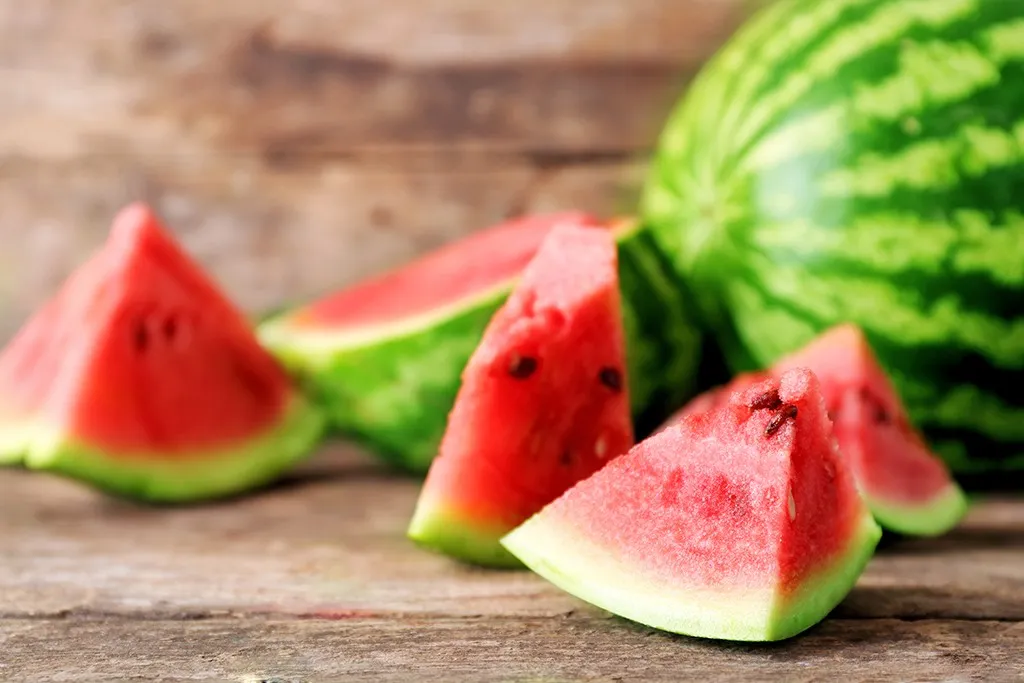
Besides being a low-calorie food that can aid in weight loss by reducing your overall calorie intake, watermelon is a robust source of citrulline, an amino acid that metabolizes into arginine, which has been shown to help burn fat quickly.
“Watermelon is about 90 percent water, so it helps keep you hydrated and full without adding a lot of calories,” says Gervacio. “It is also rich in vitamins A and C to support overall wellness. It is generally recommended to eat one to two cups per day of watermelon.”